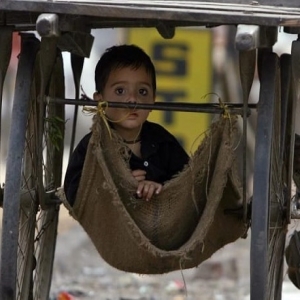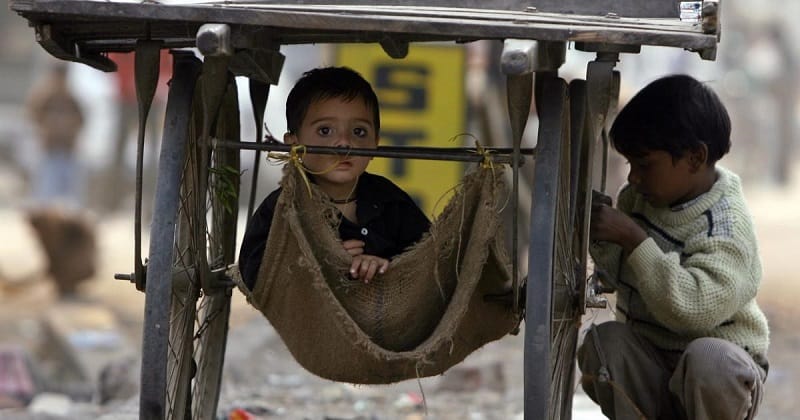
.png) Jacob Peenikaparambil
Jacob Peenikaparambil

At the end of an unprecedentedly long, dragging and tiresome election schedule during a gruelling summer, the people of India eagerly await the results on June 4. The rhetoric of Vikasit Bharat, Viswa Guru, Amrit Kal, Achhe Din, the third-largest economy in the world, etc., was totally missing in the election campaign of the BJP and PM Narendra Modi. They were replaced by poisonous and divisive propaganda, especially after the first phase of the election.
The BJP under Narendra Modi came to power in 2014 by making many promises and selling dreams like the creation of two crore jobs every year, cheap petrol, diesel and cooking gas, doubling farmers' income and depositing Rs. 15 lakhs in each citizen's bank account. Instead of the dreams coming true, the people experienced the pain of a meteoric rise in unemployment, ever-increasing price-rise, a flood of hate speeches, rampant violation of human rights through the misuse of draconian laws, denial of freedom of speech and ex
At the same time, the rich and the super-rich enjoyed 'acche din.' The number of billionaires doubled from 100, with a combined wealth of 346 billion dollars in 2014, to 200, with a combined wealth of 954 billion dollars in 2024. There are new smart cities, new and refurbished airports, reduced corporate tax from 30% to 22%, the introduction of an array of Vande Bharat luxury trains along with a decline in passenger and express train facilities, a jump in destination and extraordinarily lavish weddings, etc. In 2022-23, India became the most unequal country in the world, with the top 1% of the population having 22.6% of the income and 40.1% of the nation's wealth.
When the new government is formed after June 4, what will be the dreams of the ordinary people, especially the 80 crore people whom Modiji promised to continue giving 5 kg free grains per month? Will they extend a begging bowl before the government for the next five years, or will they become persons with self-respect, earning sufficient income with their efforts to meet their needs?
The most essential dreams of the people are related to food, clothing, housing, education, and health care. These needs must be met if they are to lead the life of a human being. To meet these needs, they expect increased employment opportunities rather than freebies. To realise this dream of the 80 crore citizens, the new government will have to encourage and support those sectors that generate gainful employment opportunities, especially MSMEs (Medium, Small and Micro Enterprises).
The fate of the poor people of India cannot be changed by giving them freebies, which may help them survive but will not make much of a difference in their lives. As Amartya Sen and Jean Dreze have analysed in their book, "An Uncertain Glory: India and Its Contradictions", the poorest of the poor in India, like daily wage workers, rural artisans, and marginal farmers, are victims of multiple inequalities - social, economic, political and educational. The key to liberating them from this situation is quality education. Unfortunately, quality education is available in India to only those who can pay. The poor get poor-quality education through government schools and low-grade private schools. The pathetic situation of education through these schools is brought out every year through the Annual Status of Education Report (ASER).
According to ASER 2023, 25% of students aged 14-18 cannot fluently read a standard II-level text in their regional language. More than half struggle with division (3 digits by 1 digit). Only 43.3% of the students aged 14-18 can do such problems correctly. This skill is usually expected at Standard III/IV. A little over half can read sentences in English.
The Modi government's concentration during the last ten years was on saffronising the contents and process of education by rewriting textbooks and changing syllabi without making much effort to improve the quality. The allocation for education by the union government in 2022-23 was only 2.9%. The Modi government had promised to spend 6% of the GDP on education, but the actual spending was far below the promised share. In 1964, the Kothari Commission recommended allocating 6% of the GDP to education. Unfortunately, no government in the past paid attention to increasing the budgetary allocation for education significantly.
The policies of the Modi government have encouraged the corporate sector to enter into the field of education and convert education into a lucrative business. The new government has to increase the budgetary allocation considerably for education, mainly primary and secondary education. The quality of government schools has to be enhanced substantially so that there is a flow of students from private schools to government schools, as in Kerala. According to the Niti Ayog report 2022-23, Kerala has the lowest poverty rate of all the states in India (0.55%) in 2019-2021. The main reason for the low poverty level in Kerala is the state government's focus on education and health care by allotting substantial financial resources every year, irrespective of the change of parties that rule the state.
Another area in which the new government has to pay attention is the healthcare sector. More than education, the healthcare sector in India has become a money-spinning business. In most states, the government's role in providing healthcare services to people has been diminishing year after year. Compared to other nations' expenditure on health (7.6% on average for countries under the OECD and 3.6% on average for BRICS countries), India's expenditure on public health was approximately 1.35% of India's GDP, according to the budget estimates for the fiscal year 2020. The allocation needs to be increased substantially to achieve universal health care.
As per the definition of the World Health Organization (WHO), universal health care means "ensuring that all people have access to needed health services (including prevention, promotion, treatment, rehabilitation, and palliation) of sufficient quality to be effective while also ensuring that the use of these services does not expose the user to financial hardship".
The question arises of how the finances needed for increased outlay for education and health can be raised. Taxing the super-rich of India can be one significant source of finance. As India is the most economically unequal country globally, social justice demands it. A paper titled "Proposals For a Wealth Tax Package to Tackle Extreme Inequalities in India) coauthored by economist Thomas Piketty, proposes "a comprehensive tax package on the ultra-wealthy to tackle the massive concentration at the very top of the wealth distribution and create valuable fiscal space for crucial social sector investments". According to the authors of this paper, a 2% annual tax on the net wealth exceeding Rs. 10 core and a 33% inheritance tax on estates exceeding Rs. 10 crores in valuation would generate a massive 2.73% of GDP.
Although infrastructure development is needed for the nation's overall growth, it should not be at the cost of human resource development. Instead of building smart cities that create slums, the new government should implement the suggestion of late president Dr APJ Abdul Kalam, "Providing Urban Facilities in Rural Areas" (PURA). Unless the focus of development does not shift to rural areas, the flow of migrants to the cities will continue, putting further pressure on the already stressed urban infrastructure, especially transportation and housing.
A second dream of the people is that the new government should strictly follow the principle of secularism without favouring any particular religion. The dangerous game of mixing religion with politics is not only to be stopped, but also some policies that are blatantly discriminatory in favour of some sections of the population are to be discontinued. Z class security provided to certain religious leaders is to be withdrawn, as it is discriminatory. Why do godmen and godwomen who claim to have divine powers need the protection of the police force?
A third dream of the people is to ensure their security and freedom by the new government. As the Modi government had scant regard for the rule of law, the new government should instruct the state governments that the rule of law is to be strictly implemented, as it is central to the fundamental rights of citizens. The radical and militant groups that take the law into their hands should be dealt with sternly. Strict action is to be brought against the police officers who support the members of the militant organisations. As a large section of the Police force is communalised, a special programme has to be launched to sensitise the police personnel. An enquiry commission under the chairmanship of a retired Supreme Court judge has to be constituted to enquire about the people who are arrested and put in jail without following the due process of law. All those unjustly put behind bars must be given bail, and false cases must be withdrawn.
For the security and freedom of the people, a strict ban on government agencies bulldozing people's houses and establishments without due process of law should be implemented. If needed, an ordinance should ban this draconian practice started by Yogi Adityanath and blindly imitated by the other BJP chief ministers.
Last but not least is detoxifying society of the venom of hatred injected into its veins, especially during the previous decade. All those who indulge in spreading hatred are to be dealt with sternly. The godi media, as well as the social media, is to be warned that their game of dividing society by spewing the venom of hatred will be met with strict action. Along with taking strict action against the hate-mongers, the new government has to initiate a special programme to build harmony among different sections of society, especially among the followers of different religions.
Special attention must be paid to building peace and harmony by promoting the core values of the Indian Constitution. The people of India suffered gravely because the government failed to educate them about the Indian Constitution and democracy. The new government must launch a massive awareness programme to compensate for past failures and negligence.